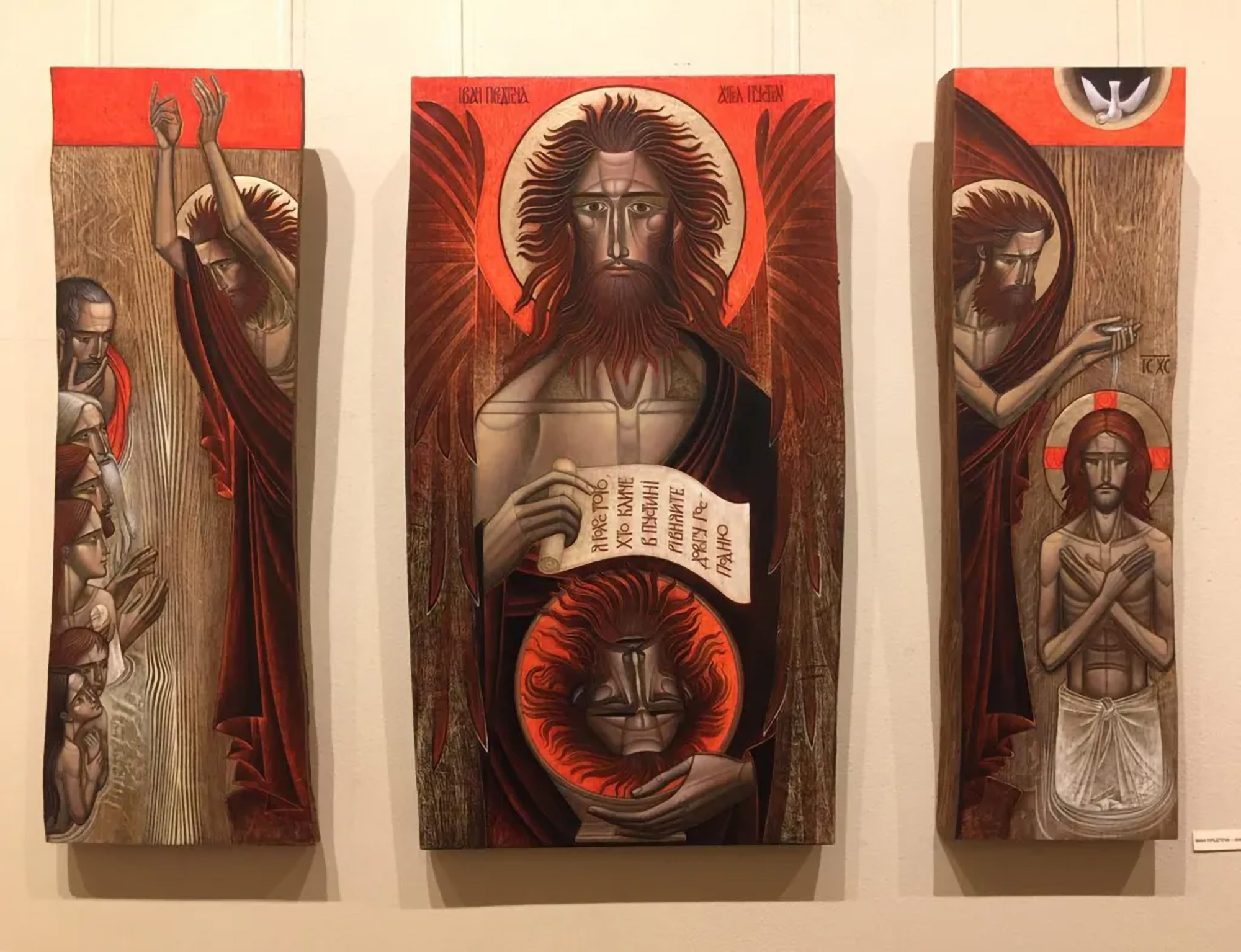Saturday in the Second Week of Advent, Year A: Sirach 48:1-4, 9-11, Matthew 17:9a, 10-13.
Today’s readings shed light on a lesser-emphasized aspect of St. John the Baptist: the fact that he is Elijah returned. The prophecy in question was given to Micah: “I will send you the prophet Elijah before the great and terrible day of the Lord comes. He will turn the hearts of parents to their children and the hearts of children to their parents, so that I will not come and strike the land with a curse” (Micah 4:5-6). Modern Christians simply don’t have the cultural frame of reference to appreciate this prophecy. Elijah was one of the original superheroes of the Jewish tradition, along with Moses and likely eclipsing even the name of Solomon, David, Judah and Israel. His miracles were profound, his wisdom straight from the mouth of God. For Jews around the time of Christ, the return of Elijah would have been a not-to-miss event, a fitting prelude to the Messiah himself.

To help us remember Elijah’s superhero status, the Lectionary provides us with an excerpt from Sirach, praising him. “How awesome are you, Elijah, in your wondrous deeds! Whose glory is equal to yours?” Sirach goes on to recount a number of his deeds, including ones not included in this excerpt like raising from the dead, healing, sending kings to their destruction. Fire figures prominently in Sirach’s account, especially the famous “whirlwind of fire, in a chariot with horses of fire” that carried him to heaven. We have reflected this Advent on how fire is a symbol of God’s purity. Elijah, surrounded by fire, was a prophet almost closer to God than other men, in every way.
The gospel reading picks up the Elijah thread. It is pulled from right after the Transfiguration (which, of course, featured Elijah as well). The disciples are walking down the mountain, asking Christ about Micah’s prophecy. Jesus answers that “Elijah has already come, and they did not recognize him, but they did to him whatever they pleased. So also the Son of Man is about to suffer at their hands.” They understand he is speaking of John the Baptist. What’s the connection between the two? Well, there are many: they both preached in the wilderness, apart from communities of men and women; they both dressed as wild men, with a leather belt around their waist; both set themselves against kings and had high-profile enemies; and both preached repentance. This last point, in particular, is how they both prepared humanity for the coming of Jesus Christ, and it is in this that Jesus can explain that Elijah has come as John the Baptist.
But Jesus also speaks about Elijah in the future tense: “Elijah is indeed coming and will restore all things.” What are we to make of this? Was Jesus just confused at that moment? Clearly not – he was just transfigured and shared the company of Moses, Elijah, and his Father! Was this a misprint in the gospel or maybe Matthew just got it wrong? Not at all – Matthew faithfully reported Jesus’s words and many manuscripts have faithfully reproduced these seemingly contradictory statements. How can Elijah still be coming and yet have already come?
We know that God stands outside of time – that the Christ Event explains the the history that came before it and forms the future after it, that the Word can speak to the prophets and also be made flesh in Mary’s womb and be coming for the Last Judgement. In this way, it makes sense to speak of the Son of God having spoke in the past, being present in humanity and still coming at the end of history. All three tenses apply and make perfect sense in reference to God, who stands outside of time. If we think of Elijah in these same moments – as a prophet to whom the Word spoke, as John the Baptist in the “present” of the gospel, and as some yet-to-come Elijah just before the end of history – then Jesus’s statements make perfect sense as well.
We might also imagine who Elijah is after he is taken into heaven on the burning chariot. We are told he was taken into heaven body and soul, but we must admit that he exists primarily on the spiritual plane where the spirit is perhaps more “real” (as we would consider things of the body more “real” here on earth). Perhaps the spiritual mode of existence in heaven alongside God allows Elijah to inherit some of His characteristics and ability to exist outside of time. After all, we are working to purify our souls so that we can be worthy of union with God. True union with God is our deification, our sharing in His Godliness. Perhaps, also, the “spirit of Elijah” can inhabit John without detracting from John’s own personhood, much like the Spirit of God can work in us. We don’t know the answers to these musings, but it is not beyond the scope of even our impoverished human imaginations to consider how it might be so.

In any case, the fact that Jesus tells his disciples that Elijah has already come as John is enough for us to accept it. I try not to question the teaching of my God, but try to humbly and happily accept it. The take-home message is that all of the prophecy regarding Jesus’s coming really did happen, including the prophecy of Elijah coming before Jesus. Probably more prophecy was fulfilled than we could ever know.
John, like Mary, accepted the role that God had for him. He is an amazing prophet and role model for us. Perhaps we should listen to him and Elijah and repent for our sins, for the Kingdom of God is near.